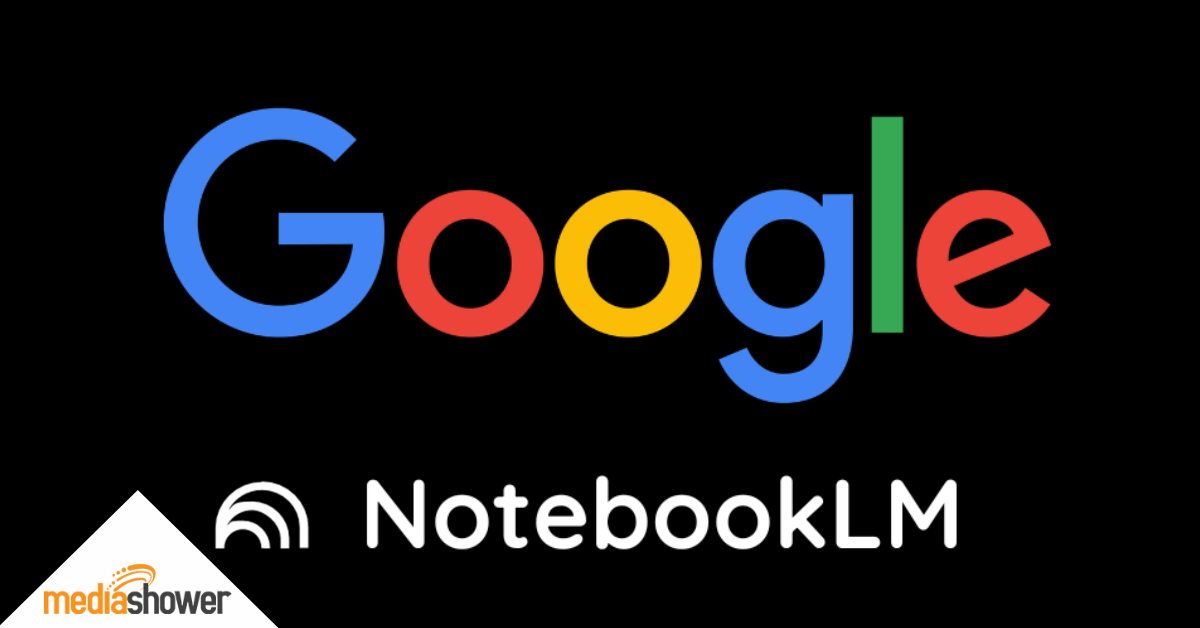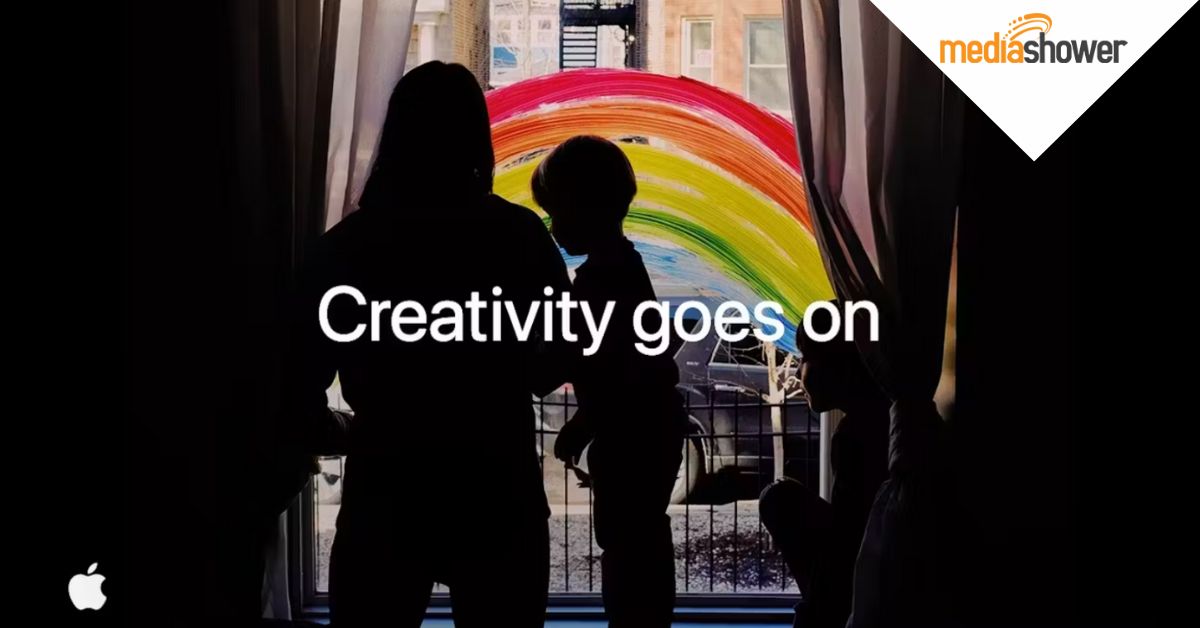
Quick Summary
- Powerful pandemic timing. Apple’s campaign celebrated human resilience and creativity during global lockdowns. They positioned their products as essential tools rather than luxury items.
- Authentic user stories. The campaign featured real people using Apple products in their homes. The ads created a genuine emotional connection with viewers who were experiencing similar circumstances.
- Brand reinforcement. Apple strengthened its brand identity as an enabler of creativity while avoiding any perception of exploiting the crisis.
When COVID-19 lockdowns brought the world to a standstill in March 2020, Apple launched a campaign that struck exactly the right chords of sensitivity and emotional resonance while remaining true to its brand.
While other companies scrambled to adjust messaging or went silent, Apple delivered “Creativity Goes On,” a heartfelt homage to human ingenuity that resonated with millions who were suddenly stuck staring at four walls.
“Creativity Goes On,” 2020.
Background: Global Lockdown
The pandemic created an unprecedented marketing challenge. Brands risked appearing tone-deaf or opportunistic if they continued business as usual. But remaining silent meant losing relevance during a critical moment.
Apple faced additional challenges:
- Economic uncertainty. Unemployment was skyrocketing, and financial futures were in doubt. Premium-priced purchases risked seeming frivolous or out-of-touch.
- Retail disruption. Apple Stores, a cornerstone of their customer experience, were closed worldwide.
- Production constraints. Supply chain issues threatened product availability just when digital devices became more essential than ever.
Instead of retreating, Apple chose to acknowledge the moment authentically. Instead of promoting specific products, their ads showed how Apple’s ecosystem was helping people adapt to a dramatically changed world—from bedroom Beethoven performances to FaceTime family dinners.
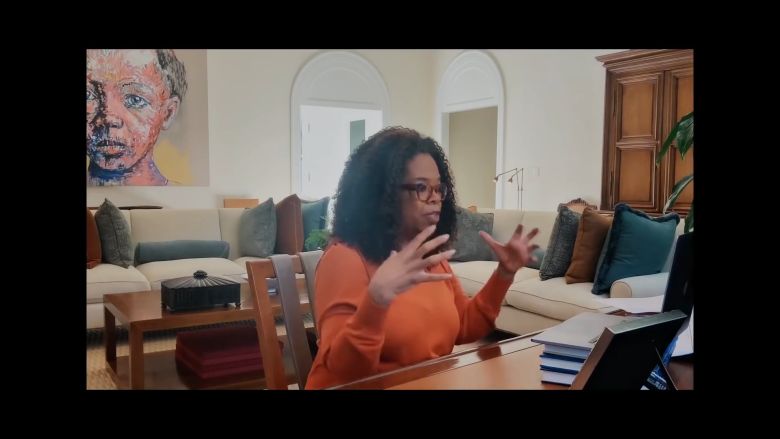
Campaign Overview
Apple released a two-minute video on April 13, 2020, just as many countries were experiencing their first full month of lockdown measures. They distributed it across their website, YouTube channel, and social media platforms.
Here’s how the campaign came together behind the scenes.
Campaign elements
The campaign consisted of:
- Hero video. A montage showing real people using Apple products creatively at home during lockdown captured both the chaos and the calm of confinement.
- Supporting content. Apple created a dedicated section on its website featuring stories of creativity and offering free resources.
- Online initiatives. The campaign included virtual “Today at Apple” creative sessions and highlighted educational resources for remote learning.
- #CreativityGoesOn. Apple sparked a global conversation by encouraging audiences to share their own creative moments using #CreativityGoesOn.
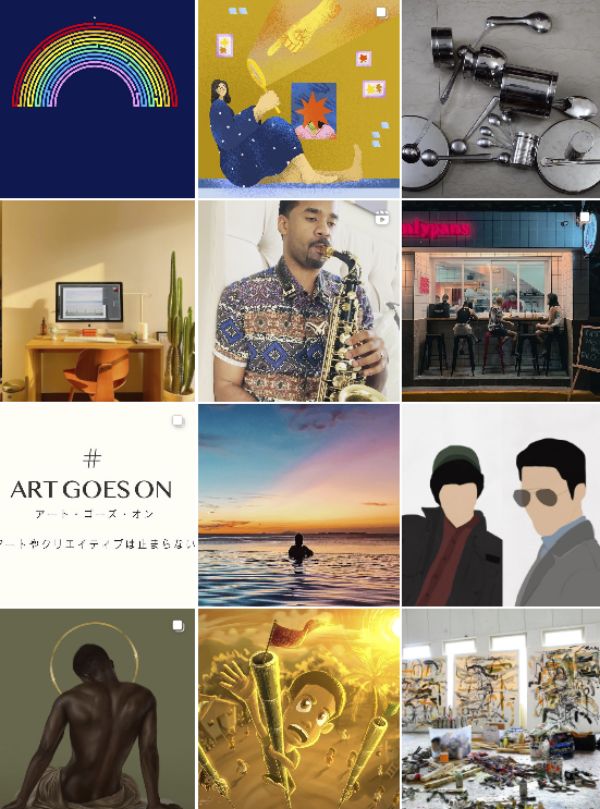
#CreativityGoesOn, Instagram.
Visual and tonal approach
The video had a distinctly different feel from Apple’s typical polished aesthetic.
It featured:
- Home footage. Authentic clips shot on iPhones showing people in their actual living spaces—messy, imperfect, and wonderfully real.
- Celebrity cameos. Brief appearances by figures like John Krasinski, Oprah Winfrey, and Lady Gaga using Apple products from their homes—stars, they’re just like us!
- Diverse creative activities. From musicians collaborating remotely to children attending virtual classes to families connecting over FaceTime.
The piano-driven soundtrack and gentle pacing created a contemplative mood that acknowledged the gravity of the moment while sounding hopeful.

Why It Worked
Perfect timing
The campaign launched when people worldwide were adapting to remote work, distance learning, and virtual socializing. With real-world examples of others doing the same, Apple tapped into the collective experience of that precise moment—when pajamas became work attire and living rooms became classrooms.
Emotional authenticity
Unlike performative “we’re all in this together” messaging from many brands, Apple’s campaign showed, rather than told. It portrayed genuine moments of human connection facilitated by technology—the birthday parties, music lessons, and family gatherings that continued despite closed doors.
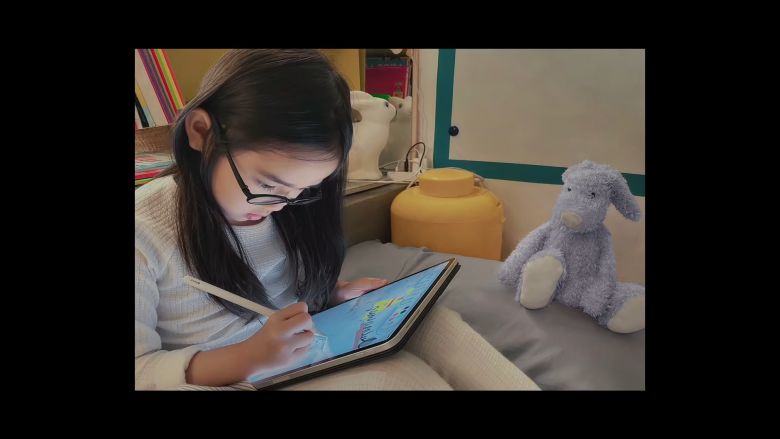
Value reinforcement
The campaign subtly reinforced that Apple products were not just luxury items but essential tools for creativity, productivity, and connection—especially valuable during isolation. The MacBook became much more than a laptop; it was a portal to the outside world.
User-generated aesthetic
Apple is known for meticulously controlled visuals. True to form, they embraced the imperfect aesthetics of home recordings and user-generated content. This aesthetic choice reflected the reality of life during lockdown and created authenticity—bad lighting, awkward angles, and all.

Brand purpose alignment
Rather than pivot their messaging, Apple deepened their existing brand purpose as enablers of creativity. The pandemic context gave this message new relevance and emotional weight.
Product integration without selling
Apple products appeared throughout the video but were never the focus. This subtle integration showed respect for the gravity of the global situation while still maintaining brand visibility—present but not pushy.
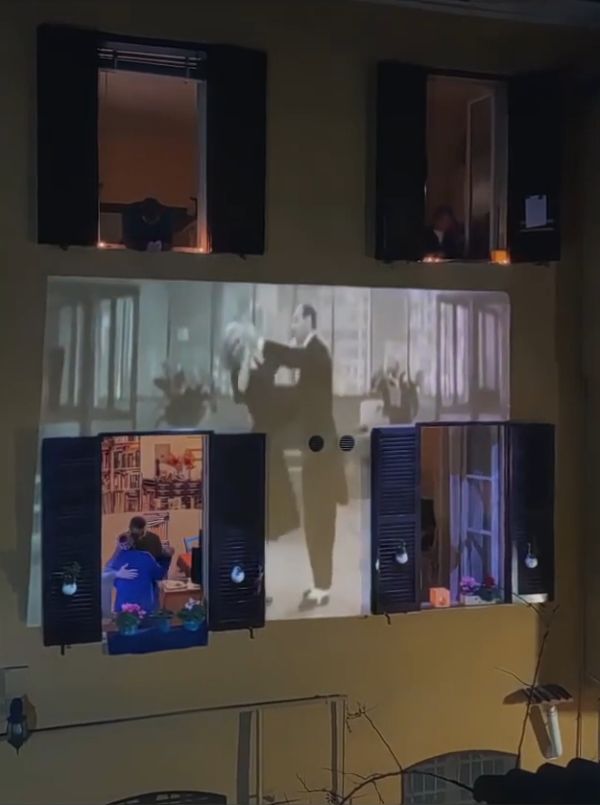
Impact and Results
While Apple doesn’t share detailed campaign metrics, “Creativity Goes On” generated significant impact.
- Media coverage. The campaign received positive coverage in major publications including AdWeek, Fast Company, and The Verge.
- Viewer engagement. The video received over 10 million views on YouTube within its first month—a captive audience for a captivating message.
- Brand sentiment. According to Morning Consult, Apple’s brand favorability grew during the pandemic period while many competitors saw declines.
- Financial performance. Despite economic uncertainty, Apple reported strong sales throughout 2020, with particular growth in Macs and iPads as remote work and education drove demand.
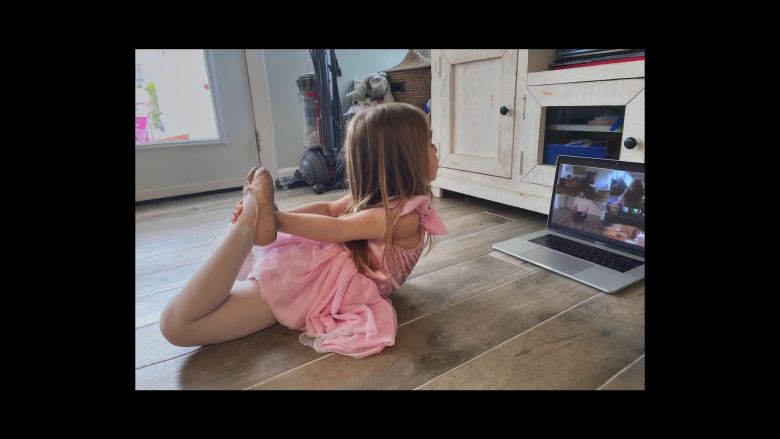
How “Creativity Goes On” Supported Apple’s Long-term Strategy
Despite the direction change, the campaign reinforced several core elements of Apple’s brand strategy.
Product ecosystem integration
By showing the interconnectedness of Apple devices, the campaign highlighted the value of the company’s ecosystem approach—particularly valuable when people were confined to their homes. Your iPhone talked to your MacBook, which connected to your Apple TV—a perfect pandemic tech triangle.
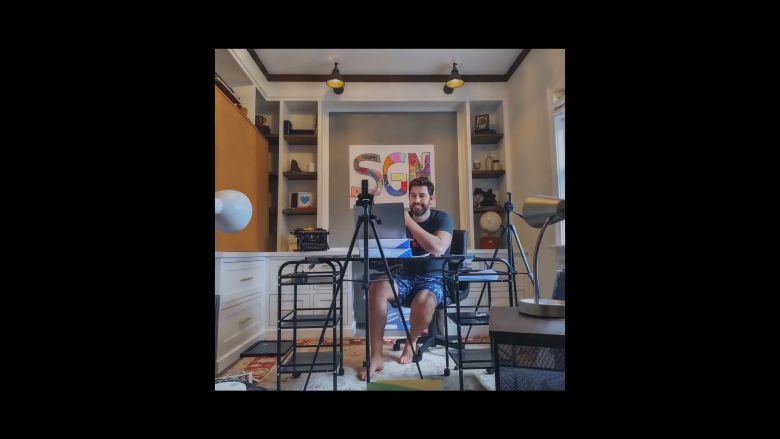
Creative community connection
Apple has long positioned itself as the tool of choice for creators. This campaign strengthened that association during a time when creativity provided an essential emotional outlet. It resonated whether you were a professional filmmaker or just documenting your first sourdough success.
Services expansion
The campaign subtly supported Apple’s strategic shift toward services, showcasing FaceTime, Apple Music, and educational tools—all growth areas for the company.
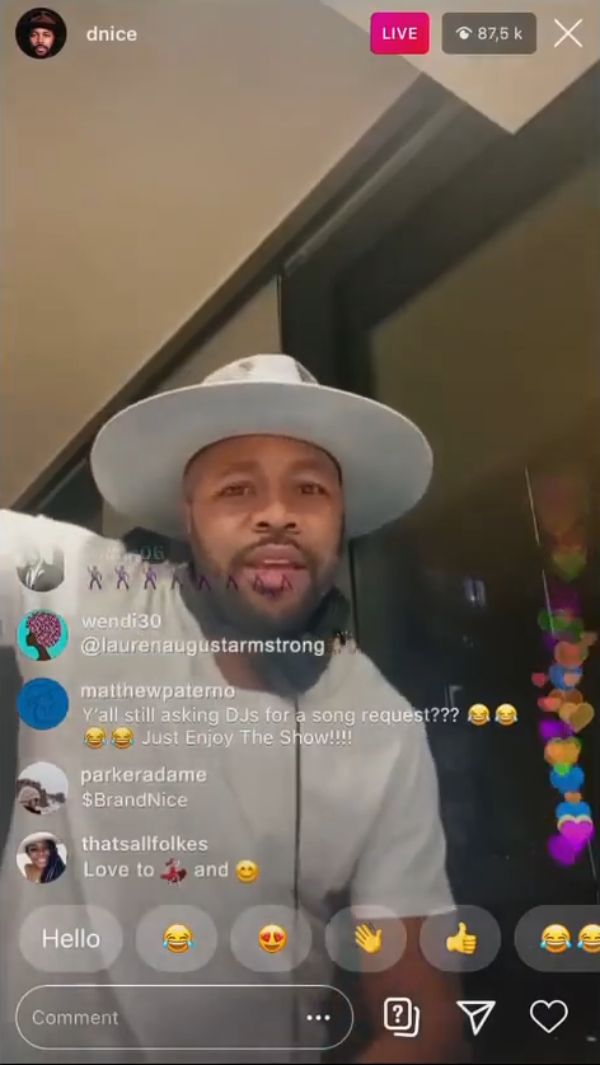
Marketer Takeaways
- Meet the moment. Apple succeeded by acknowledging reality rather than ignoring it or exploiting it.
- Show, don’t tell. The campaign demonstrated products in use rather than making claims about them.
- Adapt execution, not values. Apple maintained its core brand purpose while adjusting how that purpose was expressed.
- Focus on customer stories. Centering real human experiences created authenticity that resonated during a sensitive time.
- Embrace imperfection. Apple’s willingness to depart from its typically controlled aesthetic created relatability when polished perfection would have felt painfully out of touch.
“We have always deeply believed in the power of creativity. Now, more than ever, we are inspired by people from all corners of the world who find new ways to share their creativity, ingenuity, humanity and hope.” – Apple, “Creativity Goes On” official campaign message
Media Shower’s AI marketing platform helps brands craft messages that matter for the moments that matter most. Click here for a free trial.

